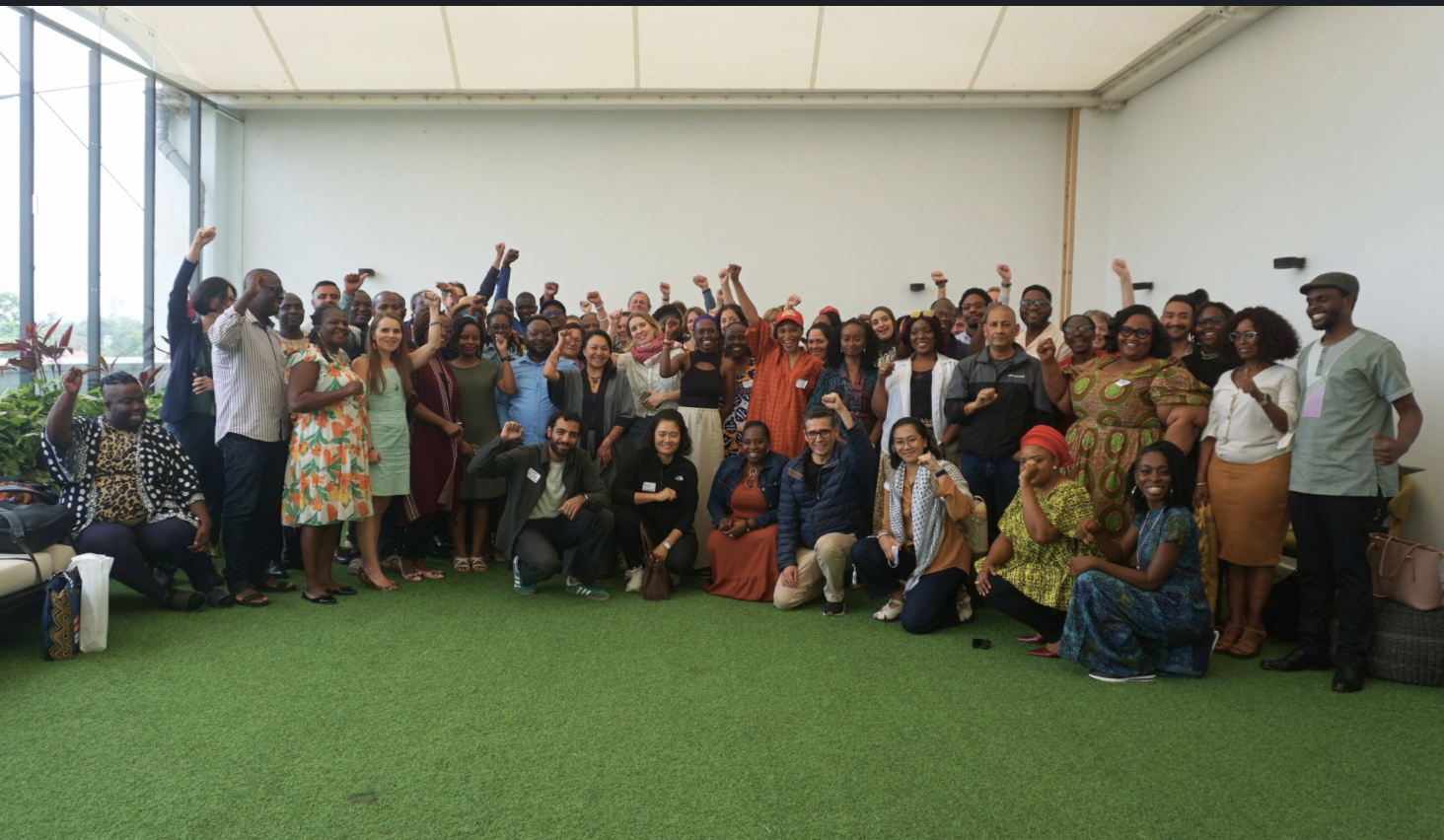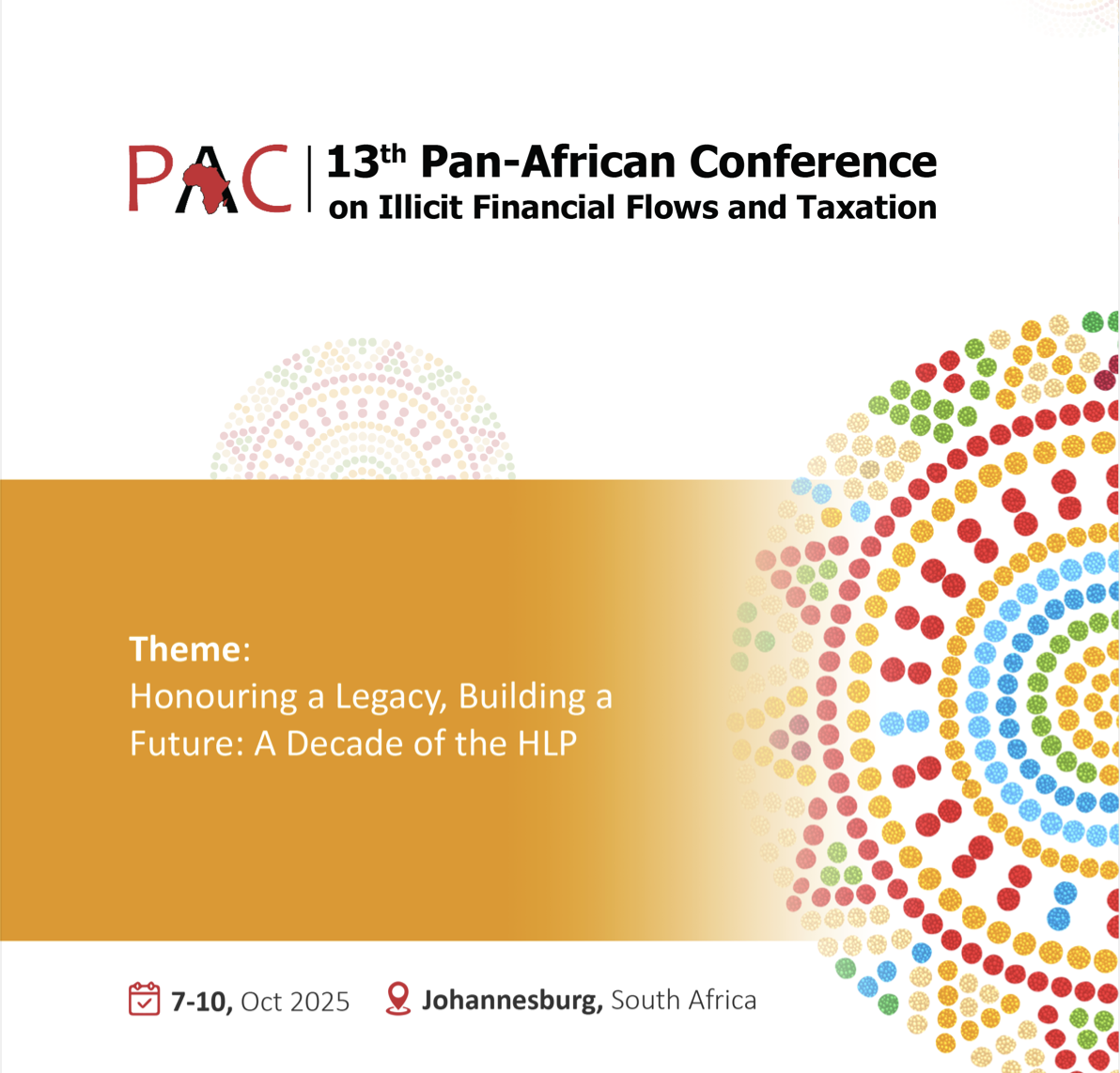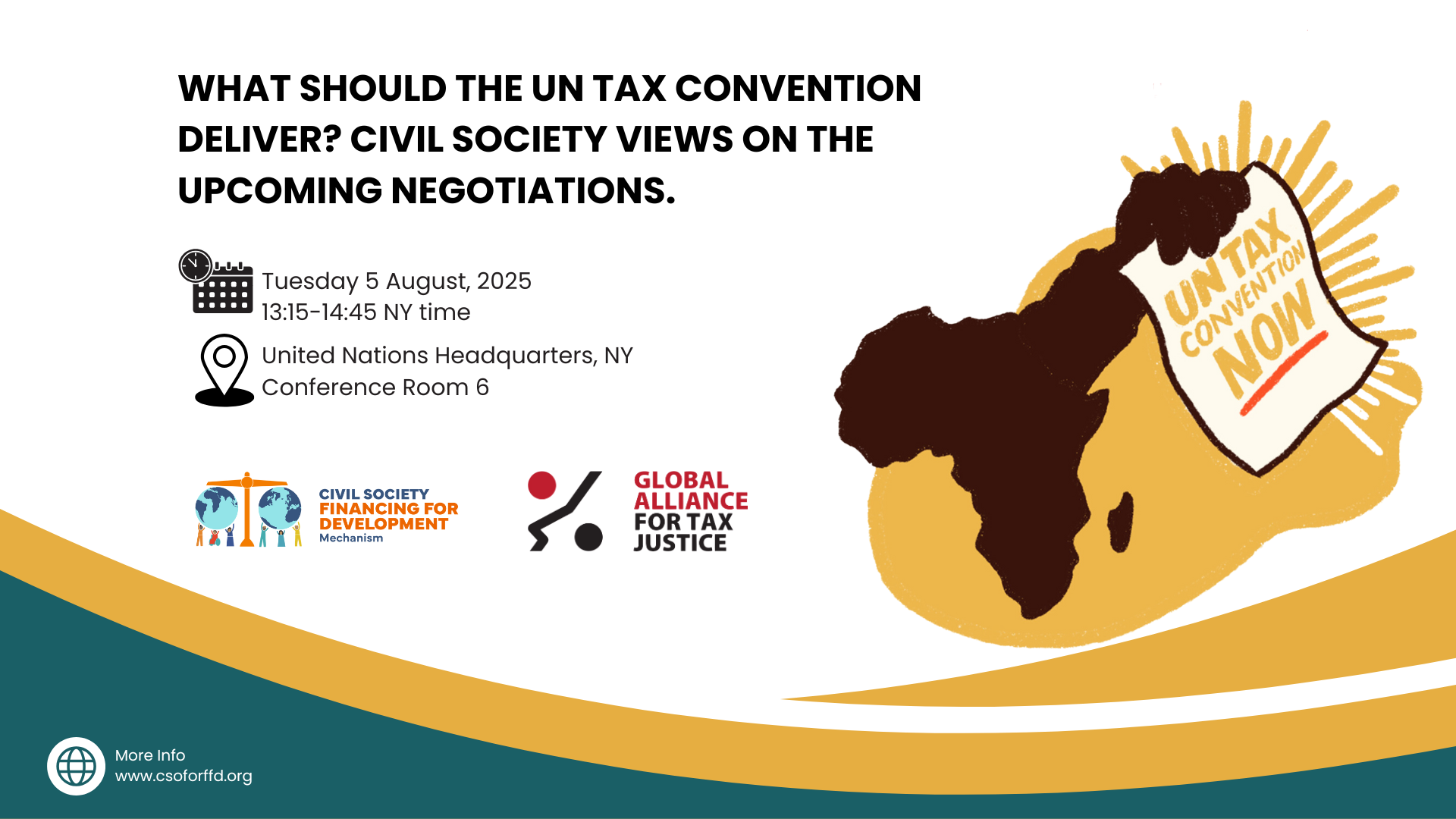
CSOs support Africa Group’s Resolution Calling for a UN Tax Convention!
The Civil Society Financing for Development (FfD) Mechanism joins members of the Global Alliance for Tax Justice (GATJ) in welcoming the recent resolution tabled by the Africa Group on “Promotion of inclusive and effective international tax cooperation at the United Nations”, published today.
Link to press release: https://globaltaxjustice.org/news/gatj-stands-firmly-behind-africa-groups-draft-resolution-calling-for-a-un-tax-convention/
Lea esta declaración en español: https://globaltaxjustice.org/noticiaes/gatj-respalda-la-resolucion-del-grupo-africano-que-reclama-una-convencion-fiscal-de-la-onu/
São Paulo, 17 October 2023 – The Global Alliance for Tax Justice (GATJ) expresses its strongest support for the UN General Assembly resolution on “Promotion of inclusive and effective international tax cooperation at the United Nations”, published today. It charts the logical next step to implement the historic UN tax resolution which was endorsed unanimously last year. The Africa Group has once again displayed a determined leadership role by submitting this resolution, and overcoming enormous pressure from those who benefit from the status quo.
Rooted in the G77’s longstanding call for a UN intergovernmental tax body, GATJ has been campaigning for a UN tax convention by mobilising global civil society to support this call and by exposing the blockage of powerful OECD countries, determined to maintain control over international tax rules and standards, perpetuating neocolonial dominance.
It is not surprising that Africa is determined and playing a leadership role to push forward this agenda within the UN framework. The UN is the only global forum where African countries can defend their collective interests and rights in a transparent process. It comes from the recognition that most of the initiatives outside the UN context will neither change the structures and practices that perpetuate tax dodging and other illicit financial flows from the Global South nor bring additional revenues.
The UN resolution from last year signifies a commitment to bring back issues of international tax cooperation to the UN to make it fully inclusive and effective. Any attempt to block this resolution will be reneging upon the unanimously adopted UN resolution.
We thus call on all UN Member States to remain committed to this resolution and support the current draft as the only way forward to implement it.
Luis Moreno, Chair of GATJ, representing the Red de Justicia Fiscal de América Latina y el Caribe (RJFALC) said:
“We welcome the draft resolution and highlight the leadership role of the African Group in promoting the reform process of the global tax system in the United Nations on equal footing. This will help advance the restructuring of the current fiscal rules that basically work in favour of a small group of countries benefiting from the current global tax rules and who are keen to maintain this dominance. We should expect them blocking any process of reforming international tax architecture in an inclusive and effective manner. Although the rhetoric is different, they are de facto defending the benefits the tax haven jurisdictions in their territories or under their domination are deriving from the dysfunctional and obsolete international tax system. LAC UN Member States should not waiver on this; they should be on the side of the Africa Group and help block the blockers because this resolution paves the way to stop profit shifting and illicit financial flows from the Global South.”
Chenai Mukumba, member of GATJ’s Coordination Committee and Executive Director of Tax Justice Network Africa (TJNA), said:
“We wish to congratulate the African Group for remaining resolute in its commitment to reform the global tax system and urge other member states to support this historic effort to correct the imbalances that currently exist. During the Second Committee, African states reiterated that the current tax system remains ineffective, exclusive and accommodating only of the interests of a few. The discussions taking place in New York are the first step in addressing these mistakes of the past.”
Jeannie Manipon, member of GATJ’s Coordination Committee and Coordinator of the Tax and Fiscal Justice Asia (TAFJA) said:
“TAFJA has been campaigning for a UN tax convention by mobilising its constituents. It now joins other members of GATJ in expressing its full support to the tax resolution submitted by Nigeria on behalf of the Africa Group. It is unacceptable that rules and norms established at the beginning of the last century still serve as the basis for international tax system. It continues to enable multinational corporations and wealthy individuals to hide wealth and shift profits with impunity. This architecture is obsolete beyond repair and should be overhauled from bottom to top. Only a Member States-led intergovernmental negotiation at the UN can pave the way for inclusive and effective international tax cooperation and a UN framework tax convention. The vast majority of Asian countries are at the receiving end of this unfair tax system. Therefore, they should support this resolution so that a new era in international tax governance is established to ensure fair and equitable distribution of taxing rights.”
Dereje Alemayehu, Executive Coordinator of GATJ said:
“GATJ would like to commend the Africa Group for its steadfastness in tabling this draft resolution. We are cognisant this determination comes from the disappointing experience of the continent in other processes outside the UN, in which African global taxing rights are neglected and only a neocolonial and patronising “capacity building “is recognised as the priority for Africa. This is a shameless narrative, not even indirect, stating that Africa needs the tutelage of its former colonial masters to take care of its interests at the global level. Every nation represented at the UN committed to equality and fairness in international tax cooperation must stand in solidarity with this resolution! Blockers of this resolution should be called out as oligarchs scared of being equals in the community of sovereign nations.”
—
Ends
About the Global Alliance for Tax Justice
The Global Alliance for Tax Justice (GATJ) is a South-led global coalition in the tax justice movement. Together we work for a world where progressive and redistributive tax policies counteract inequalities within and between countries, and generate the public funding needed to ensure essential services and human rights. Created in 2013, GATJ comprises regional tax justice networks in Asia (Tax & Fiscal Justice Asia), Africa (Tax Justice Network Africa), Latin America (Red de Justicia Fiscal de América Latina y el Caribe), Europe (Tax Justice-Europe) and North America (Canadians for Tax Fairness & FACT Coalition), collectively representing hundreds of organisations.
Media Contacts
Dereje Alemayehu – Global Alliance for Tax Justice – dereje@globaltaxjustice.org
Lays Ushirobira – Global Alliance for Tax Justice – lays@globaltaxjustice.org

